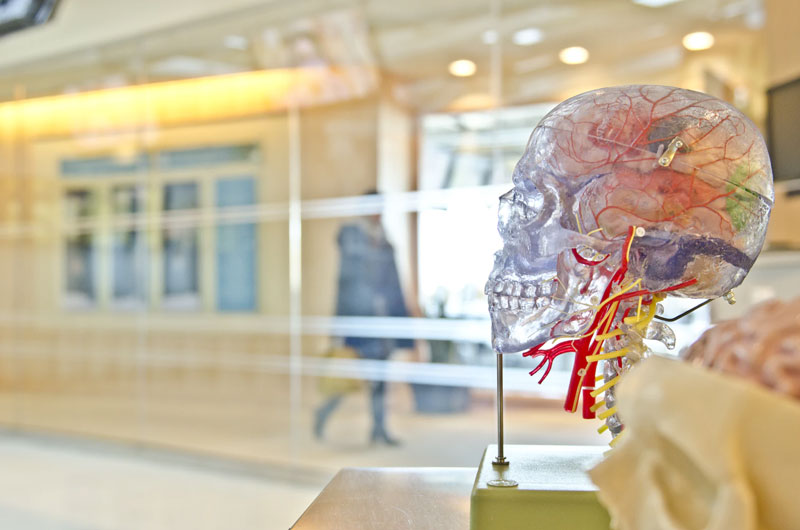How Does CBD Interact With the Brain?
May 4, 2020

Whether you’re a long-time lover of natural CBD oil or only just starting to explore the idea, you might have found yourself wondering: “How does CBD affect the brain?” and “Is it dangerous?” Fortunately, there is constantly evolving, extensive research on the effects and potential benefits of CBD that will help us to answer this question and demonstrate how this phenomenal substance can boost your health without “getting you high.”
Understanding How CBD Interacts With the Brain: Our Cannabis-Like Molecules
The answer to the question, “What does CBD do to the brain?” was not well understood until the 1990s, when scientists discovered molecules in the human body that closely resembled those of cannabis. Intrigued, scientists continued to research this phenomenon and discovered that the body’s own cannabinoids — termed endocannabinoids (or eCBs) — were not limited to the brain and nervous system but could actually be found in nearly every bodily system, including the:
- Skin
- Immune System
- Skeletal System
- Skeletal Muscular System
- Fat Tissue
- Blood Vessels
- Gastrointestinal (GI) Tract
- Reproductive System
- Liver, Pancreas, Kidneys, Heart
In short, cannabis-like molecules can be found almost everywhere in the human body! So when people ask, “How does CBD affect the brain,” the answer actually takes us further to explore how cannabinoids interact with the entire body.

Restoring Homeostasis
So, if endocannabinoids are found throughout the body, they must have an important job to do, right? Correct! According to ongoing research, this job appears to be maintaining homeostasis, or biological harmony, in response to changes inside and outside of the body.
For example, when you enter a cold room or step outdoors in the winter, your body naturally responds by making you shiver so that your body temperature will rise and return to a normal range. That’s an act of homeostasis or keeping the bodily systems in-tune and in-check.
To understand how CBD does affect the brain, it helps to know that the body produces eCBs in response to changes, which then signal the brain to bring your body back into perfect balance. You can see, then, why a deficiency of endocannabinoids could lead to huge problems in your health, and why CBD seems to help with such a large range of health complaints!
The Human Endocannabinoid System
If you’ve been asking “What does CBD do to the brain?” you also need to understand how the endocannabinoid system (or ECS) works. Initially, scientists thought that cannabinoid receptors existed only in the brain. Now, they have discovered that there are two different types of receptors: CB1 — occurring mostly in the brain and central nervous system — and CBD2 — occurring mostly in the internal organs, immune system, and bodily tissues. These receptors are located on the surface of cells and function as a signaling system that detects changes in the environment and communicates these to the brain for action.

How Endocannabinoids are Made
On the brain’s command, cells synthesize at least two different kinds of endocannabinoids — anandamide and 2-AGanandamide and 2-AG — which stick around as long as they are needed to do their job before being broken down and metabolized. CBD actually enhances this natural process rather than artificially modifying it in the way that THC does. Otherwise put, CBD encourages our body’s synthesis of endocannabinoids instead of adding something foreign to the process.
How Does CBD Affect the Brain? Endocannabinoids and Phytocannabinoids
Like anandamide and 2-AG, phytocannabinoids (from plants) interact with CB1 and CB2 receptors to help restore homeostasis. They can do this by turning receptors on/off or by stimulating the production of eCBs. Let’s take a look at the two most well-known phytocannabinoids: THC and CBD.
What Does THC Do to the Brain?
Tetrahydrocannabinol, or THC, is the most abundant cannabinoid in marijuana plants (but is much less abundant in hemp plants) and the one that creates the plant’s well-known intoxicating effects. Looking at how THC affects the brain can help us to understand how CBD affects the brain because the two function quite differently.
When smoked or ingested, THC mimics anandamide and binds to CB1 and CB2 receptors just like a key in a lock. In the brain, THC acts most strongly on the cerebellum, basal ganglia, and hippocampus, which explains its notable effects on coordination, learning, problem-solving, and short-term memory.

What Does CBD Do to the Brain?
Cannabidiol, or CBD, is the most abundant cannabinoid in medicinal hemp plants and the one that offers the most therapeutic benefits when ingested or applied topically. In contrast to THC, CBD doesn’t affect the brain by “locking” into the CB receptors directly but, instead, modifies the natural ability of the receptors to bind to other cannabinoids. It also stimulates the body’s production of eCBs. This modifying effect may explain why CBD seems to improve one’s sense of wellbeing while demonstrating a low toxicity profile.
As a natural enhancer of the eCB system, CBD affects multiple processes in the brain and body, including:
- Pain
- Mood
- Memory
- Stress
- Appetite
- Sleep
- Metabolism
- Immune Function
- Reproductive Function
How Does CBD Affect the Brains of Dogs and Cats?
Knowing how important the ECB system is for maintaining homeostasis in the human body, it should come as no surprise that this incredible system is present in all vertebrate animals as well — including mammals, reptiles, birds, fish, and amphibians!
However, unlike humans, animals such as dogs and cats are extremely sensitive to phytocannabinoids and cannot tolerate THC even in small quantities. Knowing what CBD does to the brain of animals makes it vitally important to choose CBD oil for pets that contains 0.00% THC and is specifically formulated by experienced veterinarians.
Boost Your Health Naturally with CBD Oil from Kanavia
Now that we’ve answered the question, “How does CBD affect the brain?” the next question should be, “Which kind of CBD oil is best for my health?” Fortunately, you’ve come to the right place! While any genuine CBD oil should offer benefits for your health, the best CBD oil will be organic, broad-spectrum, and nano-emulsified.
Kanavia’s collection of online CBD products meets all of these criteria — offering the organic goodness of medicinal-grade, US-grown hemp, and up to six times more bioavailability than similar products. Shop our products today and enjoy free U.S. ground shipping and a complimentary CBD face mask with your order!

